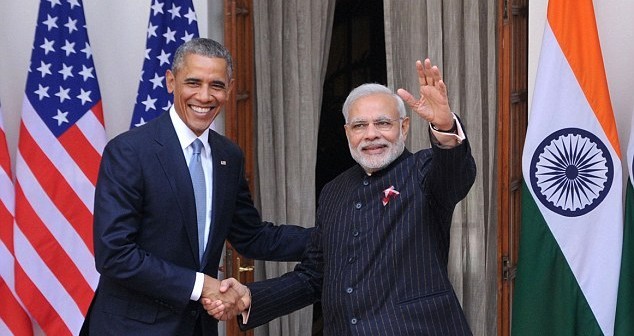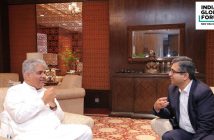Much has already been written and said by now about President Obama’s recent visit to India. Yes, it was unprecedented in many, many ways including the fact that both leaders were able to finally broker a deal on the civil nuclear issue. Now that the trust deficit has been bridged, it is of course for business to seek out the opportunities, and both governments to be determined facilitators.
But above all, the visit has drawn a firm line under India’s Non-Aligned (read: Non-Committal) world view. It was a world view that was, to say the least, frustrating to other leading democratic world powers, and to many in India who believed that India’s place belonged firmly aligned to the free-world. So no more shadow boxing. The US is a friend India can bring home and show off. And if China screams, so be it. After-all, both India’s Constitution and that of the US start with the same three evocative words “We The People”.
All this, including the swift and timely elevation of S. Jaishankar – the hugely pragmatic and equally strategic diplomat, as India’s new foreign secretary will in my view send the right signals to Indian business going global. Prime Minister Modi is a “go for it” man, and Indian businesses are being encouraged to do exactly that. The commerce minister, Nirmala Sitharaman, who has demonstrably shown she shares the Prime Minister’s vision, will be a pleased lady.
In going global what Indian business need, especially India’s increasingly ambitious SME sector, is a more strategic support mechanism similar to that of the UK Government’s Trade & Investment arm UKTI. The other extreme is China’s state diktats to its industry to make acquisitions, which suit geo-political ambitions not always with sound business rationale.
UKTI is in effect a joint venture between the Department for Business, Innovation & Skills, and the previously rather aloof Foreign & Commonwealth Office (FCO). UKTI’s mandate is to bat for British business globally. To lend the support, the network and, where necessary, diplomatic muscle to ensure British business seek out the best opportunities and receive the right support “in-country”. Indian companies are hitherto left to fend for themselves for the greater part, especially in sensitive areas such as defence supply chains and other high end technology acquisitions of national importance.
Prime Minister Modi has shown that government and business can be at ease with one another. The Indian Foreign Services’ much needed reform (already mooted by Modi during his election campaigning last year) must equally bring about a sea change in approach and attitude to supporting Indian business. I am hopeful and indeed confident that Jaishankar is the man for the job.
This issue of ‘India Global Business’ is inevitably dominated by the hugely successful visit of the US President, a well-rounded analysis of what was achieved and the key aspects that will define the new bond struck between Obama and Modi. It also looks at some of the major headlines of January, including India’s definitive step towards tax reforms and a round-up of India Inc.’s Digital India Roundtable in Washington DC.
The New Year has certainly got off to a good start.







